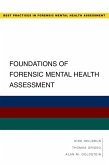Public behavioral health organizations serving those involved in the criminal justice system, such as problem-solving courts, correctional facilities, and parole or probation, often lack the necessary resources for long-standing effective treatment, and may struggle to keep up with research standards and retaining funding. To overcome these hurdles, many organizations have turned to university-led collaborations. University and Public Behavioral Health Organization Collaboration in Justice Contexts begins by introducing the relevant purpose and definitions of such partnerships. Each of the nine contributed chapters that follow features a particular collaboration between a university and a public behavioral health organization. Chapters are structured around a description of the collaboration's purposes, beginning, leadership, who is served, services, operations, effectiveness measurement, and financial arrangements. The descriptions provided of each project are then aggregated into a larger model for success which is detailed in the final chapter, along with a distillation of lessons learned in building, operating, and sustaining a successful collaboration. These lessons are grouped into specific categories: planning, working together, training, consultation, financial considerations, personnel, and research. By considering these nine exemplary projects and what they can teach us about such collaborations, this book constitutes an essential guide for those looking to establish comparable partnerships between universities and public behavioral health organizations in a criminal justice context.
Dieser Download kann aus rechtlichen Gründen nur mit Rechnungsadresse in A, B, BG, CY, CZ, D, DK, EW, E, FIN, F, GR, HR, H, IRL, I, LT, L, LR, M, NL, PL, P, R, S, SLO, SK ausgeliefert werden.









